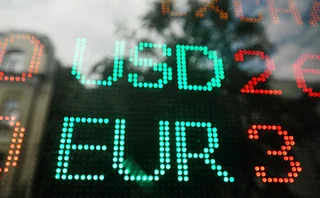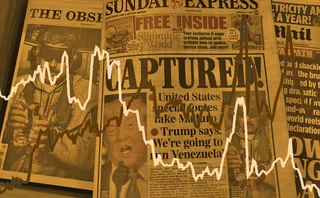
Information asymmetry

As corporate derivatives litigation activity intensifies in the region, with cases flaring up from India through to South Korea, a number of common themes are starting to emerge. Perhaps the most striking is the expectation that hedging, which is designed to act as a form of insurance, comes for free.
This conceptual flaw lies at the heart of the problem with many trades that were put on to hedge against, say, the further appreciation of a home currency against the US dollar or the price rise of commodity inputs such as energy or metals. Instead of just paying a premium to cover the cost of insurance against a possible unfavourable currency or commodity price move, corporations decided they could do trades far more cheaply by taking on another risky position where they would receive a guaranteed premium but may need to pay out should the position work out against them - they effectively offered hedges to banks.
Many of the region's airlines, shipping companies and exporters put on these trades. Some companies are now trying to extricate themselves from these costly contracts by claiming they did not fully understand what they were signing up to. Bankers, meanwhile, claim companies must have known that nothing comes for free.
Clearly there are issues regarding information asymmetry. Can a mid-sized corporate really understand exotic options positions as well as a major dealer? For a start, the corporate is unlikely to have access to anything like the amount of flow information available to a bank. The term 'buyer beware' also takes on a new meaning when, as our cover story mentions, some Korean corporates claim they didn't even understand the word 'buyer' in English in their knock-in, knock-out derivatives agreements. Are risks really being passed to the people that are best placed to manage them?
Despite the occasional scare in places such as South Korea, dealers have the odds stacked firmly in their favour from a legal perspective. Even savvy, native English-speaking hedge fund managers whose trading abilities are arguably better than many bank counterparts were caught out by standardised legal documents in September last year when Lehman Brothers went bankrupt.
Being legally in the right, however, is not the same as being ethically correct. While some dealers deserve credit for refusing business to clients that fail to meet rigorous suitability tests, these institutions can't force such practices on their peers. And this ultimately undermines all efforts to promote self-regulation.
Christopher Jeffery.
Only users who have a paid subscription or are part of a corporate subscription are able to print or copy content.
To access these options, along with all other subscription benefits, please contact info@risk.net or view our subscription options here: http://subscriptions.risk.net/subscribe
You are currently unable to print this content. Please contact info@risk.net to find out more.
You are currently unable to copy this content. Please contact info@risk.net to find out more.
Copyright Infopro Digital Limited. All rights reserved.
As outlined in our terms and conditions, https://www.infopro-digital.com/terms-and-conditions/subscriptions/ (point 2.4), printing is limited to a single copy.
If you would like to purchase additional rights please email info@risk.net
Copyright Infopro Digital Limited. All rights reserved.
You may share this content using our article tools. As outlined in our terms and conditions, https://www.infopro-digital.com/terms-and-conditions/subscriptions/ (clause 2.4), an Authorised User may only make one copy of the materials for their own personal use. You must also comply with the restrictions in clause 2.5.
If you would like to purchase additional rights please email info@risk.net
More on Markets
LatAm FX carry trade shrugs off geopolitical fears
Clients in regional carry positions remain undeterred by US interventions, say dealers
S&P bull run drives interest in reset and lookback hedges
Variable strike put options proved popular alternative hedging format of 2025
US mutual funds slash short euro positions at record pace
Counterparty Radar: Pimco cut $4.6bn of EUR/USD puts in Q3 amid changing stance on dollar direction
Nomura hires new global eFX head
Mark McMillan to oversee e-trading and sales activities in newly created role
Trump’s LatAm gambit spurs FX hedging rush
Venezuela op boosts risk reversals as investors look to protect carry trades
One Trading brings 24/7 equity trading to Europe
Start-up exchange will launch perpetual futures Clob in Q1 after AFM nod
FXGO volumes surge despite fee switch-on
Dealers split on whether levy is behind volume increases across SDPs
Banks hope new axe platform will cut bond trading costs
Dealer-backed TP Icap venture aims to disrupt dominant trio of Bloomberg, MarketAxess and Tradeweb








